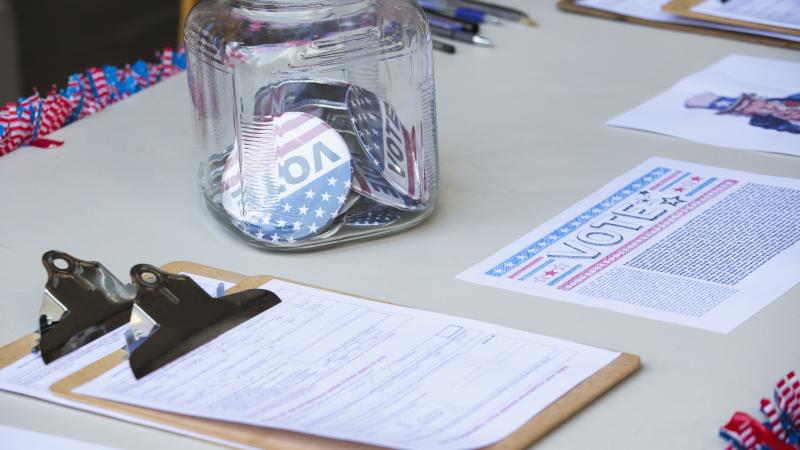California lawmakers reintroduce zero bail bill in waning days of session
Legislation would prohibit the “costs relating to the conditions of release on bail from being imposed on persons released on bail.”
With California’s legislative session set to end Aug. 31, lawmakers this week resurrected a last-minute proposal to instate a zero-bail policy
The proposal, contained in Senate Bill 262, would prohibit the “costs relating to the conditions of release on bail from being imposed on persons released on bail or their own recognizance,” according to the bill text.
The bill would also require a court to return money paid to a bail bond licensee on behalf of the arrestee if the case is dismissed or no charges against the arrestee are filed within 60 days. The measure allows a bail bond licensee to retain a surcharge of 10%, meaning an arrestee could get back 90% of their money if a case is dismissed and charges aren’t filed within the deadline.
In April 2020, the California Judicial Council established a policy to set bail at zero for most misdemeanor and low-level felonies to keep the jail population low during the pandemic, as reported by ABC7. The council voted to end that policy in June 2020.
Sen. Robert Hertzberg, D-Van Nuys, the author of SB 262, had previously introduced the measure in January 2021 to expand zero bail for many offenses. Hertzberg ultimately decided to shelve the measure after the murder of 61-year-old Kate Tibbitts in Sacramento last September. Tibbitts was raped and murdered in her Sacramento home by a man who was released from prison early and let out on zero bail, according to KCRA. The man also killed her dogs and set her home on fire.
A previous version of SB 262 would have required a court to “first consider whether nonfinancial conditions will reasonably protect the public and the victim and reasonably assure the arrestee’s presence at trial” before setting a bail amount. If a court ultimately decided that bail was necessary under these conditions, courts would be required to inquire about the arrestee’s ability to pay the bail without “substantial hardship,” thus requiring courts to set an affordable bail.
The current amended version of the bill appears to have struck the provisions requiring affordable bail. A spokesperson for Hertzberg’s office, however, could not confirm whether or not the affordable bail provision still applies to the amended bill. Hertzberg’s office did not respond to comment requests from The Center Square within deadline about the reintroduction of the legislation.
The reintroduction of the measure garnered pushback from Republican lawmakers in the Senate earlier this week. Senate Republican Leader Scott Wilk, R-Santa Clarita, cited data from the Yolo County District Attorney that revealed 420 of the 595 individuals released without bail in the county were rearrested.
“The numbers don’t lie, and it is obvious zero bail is a fail for the public’s safety,” Wilk said in a statement.
Jeff Clayton, the executive director of the American Bail Coalition, voiced concern about the provision in the bill that would require refunds for bail premiums in certain situations.
“The big problem is that it requires refunds of bail premiums when the case is dismissed or charges aren’t filed, and that’s a major problem because bail agents are only going to be economically incentivized to bail out the guilty and not the innocent,” Clayton said. “If somebody’s provably innocent, you wouldn’t want to bail them out because you’re not going to get paid. And so that’s going to flip the presumption of innocence the wrong way basically in practice and create results that we don’t want.”
Clayton added that if this bill is signed into law, it could result in situations where “defendants will just have no incentive to show up in court and no incentive to not continue to commit crimes.”
According to legislative records, the bill was moved from the inactive file on Tuesday, and the Assembly voted to amend the measure on Thursday. Lawmakers have until Wednesday to get the bill out of the Legislature and on to the governor’s desk.














